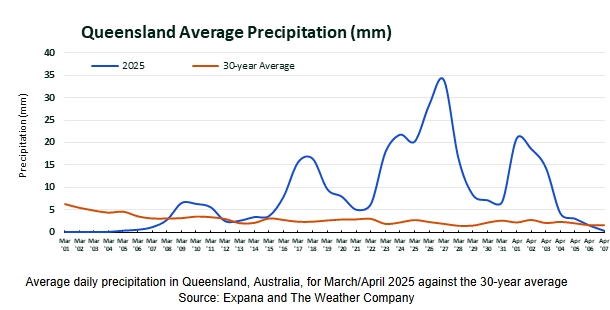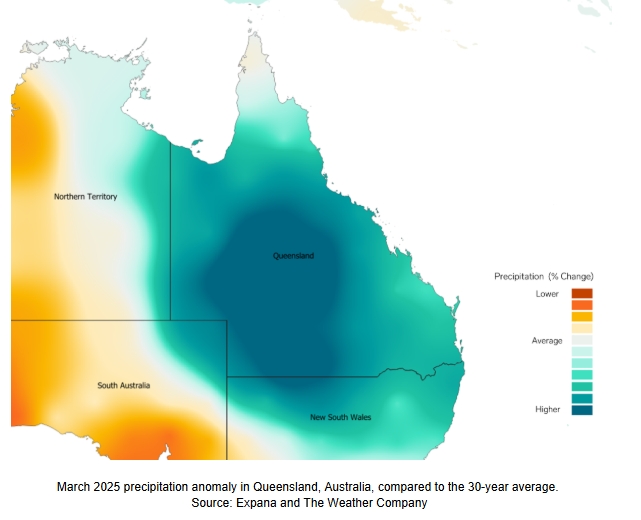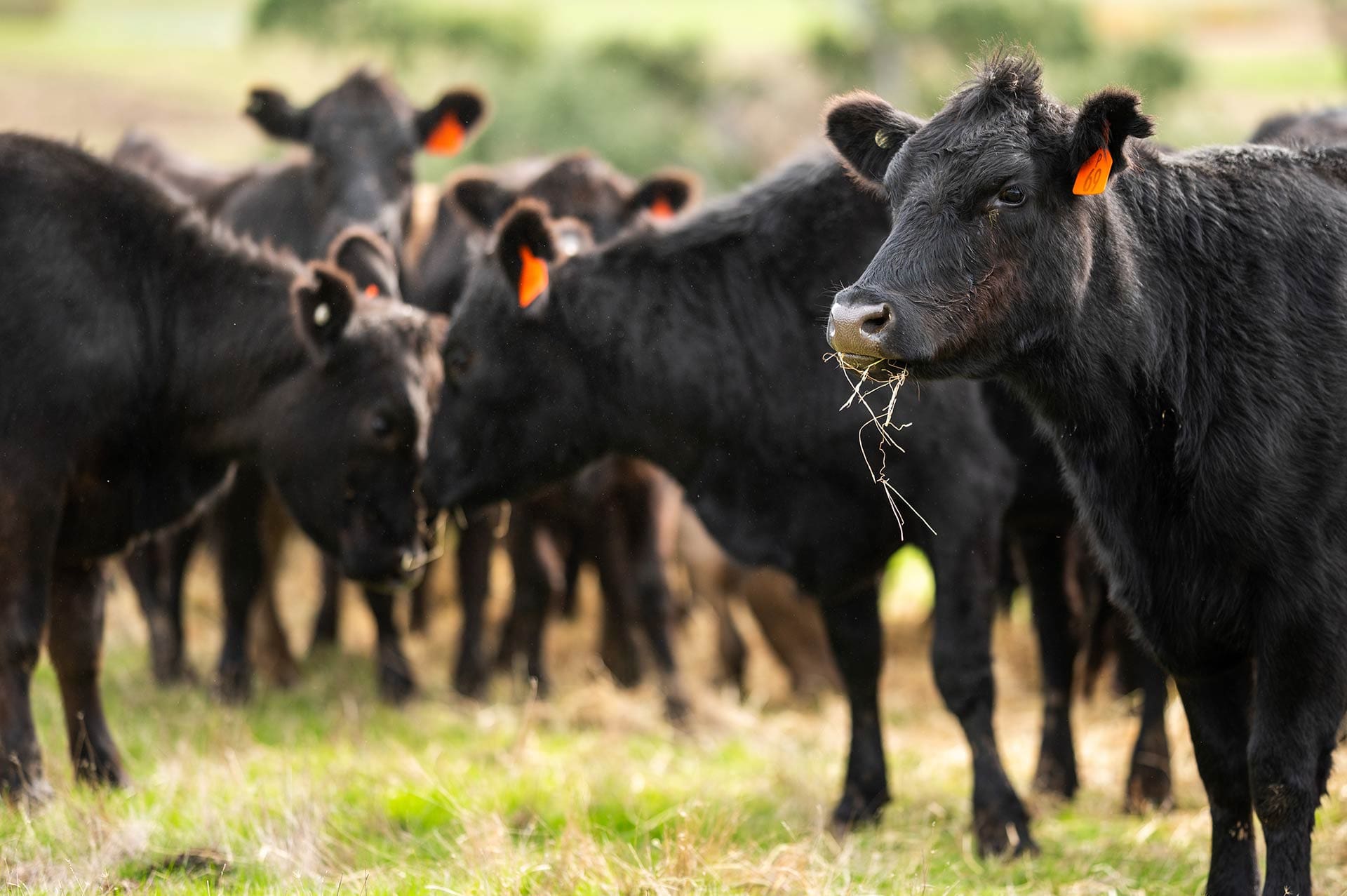Queensland, Australia, was afflicted by extreme weather throughout March, beginning with ex-Tropical Cyclone Alfred in early March, followed by torrential rainfall later in the month. Widespread flooding across the state severely impacted multiple industries, particularly beef — one of Australia’s key exports, according to James Tyler, Weather and Crop Researcher at Expana.

Ex-Tropical Cyclone Alfred made landfall near Brisbane, Queensland, on March 8 as a tropical storm, triggering floods that cost the national budget over AUS$1.2 billion (approximately US$750 million). The flooding disrupted the beef industry significantly, as extreme conditions hampered transportation, damaged infrastructure, and resulted in livestock deaths. Some beef processing plants were forced to temporarily close, leading to a loss of processing days and approximately 14,000 fewer cattle being slaughtered compared to the previous week. The cyclone also shut down Port of Brisbane, responsible for handling around 70% of Australia’s beef exports, delaying shipments and creating a backlog once operations resumed.
Later in the month, intense rainfall caused more severe flooding, especially across Queensland’s outback. On March 27 alone, Queensland received an average of 34mm, compared to the historical average of just 2mm. Herds of livestock were reportedly washed away by the floods, with early estimates suggesting over 150,000 livestock dead or missing, around 70,000 of which were cattle. Early estimates from Queensland’s Department of Primary Industries (DPI) confirm at least 105,348 livestock missing or deceased as of April 3, though industry sources suggest losses could be significantly higher. It is understood that the actual losses may be higher, as full assessments could take months. Transportation difficulties also persisted, with over 4,500 km of private roads likely requiring repair, further slowing the supply chain.
“The disruption is expected to affect cattle movement from farms to feedlots and, to a lesser extent, slaughter and processing operations,” said Junie Lin, Red Meat Market Analyst – Asia Pacific at Expana. According to Meat and Livestock Australia, weekly slaughter in Queensland in the week ending April 4 fell by 2,877 head from the previous week. However, total slaughter across the country remained 45% above year-ago levels, reflecting the momentum behind Australia’s ongoing production boom.
The extreme weather also affected other livestock sectors, with many sheep, goats, and horses also missing or dead. Damaged fences raised concerns over increased vulnerability of sheep to wild dog attacks, potentially reducing numbers further. For dairy farmers, logistical challenges during ex-Tropical Cyclone Alfred forced them to dispose of hundreds of thousands of litres of milk. Additional flooding later in the month could have led to further milk dumping.
Ex-Tropical Cyclone Alfred also caused extensive crop damage, with reported losses seen for fruit including bananas, custard apples, avocados and blueberries, nuts including pecans, as well as soyabeans, coffee, and sugar cane. Orchards were particularly hard hit, with broken branches and toppled trees threatening long-term productivity. There was particular concern for macadamia nuts, of which Australia is a major supplier, contributing around 20% of global exports, said Nick Moss, Nuts Market Reporter at Expana. While there were reports of damage and delayed harvests, the primary growing regions in Queensland were largely unaffected, orchards in New South Wales were hit harder. The Australian Macadamia Society (AMS) was encouraged however, by initial reports that younger orchards in the unaffected areas performed well for the season and will help offset losses from orchards more significantly impacted by the storms.
Based on current reports, AMS has revised its national 2025 forecast downward by only 1.6% on March 26. It remains unclear how the more recent flooding may have further impacted the macadamia crop and other agricultural outputs.

Additional reporting by Erin Knight, Commodity Researcher,
Junie Lin – Red Meat Market Analyst – Asia Pacific,
and Nick Moss – Nuts Market Reporter
Edited by Simon Duke – Managing Editor, EMEA
Expana
[email protected]
Written by James Tyler



